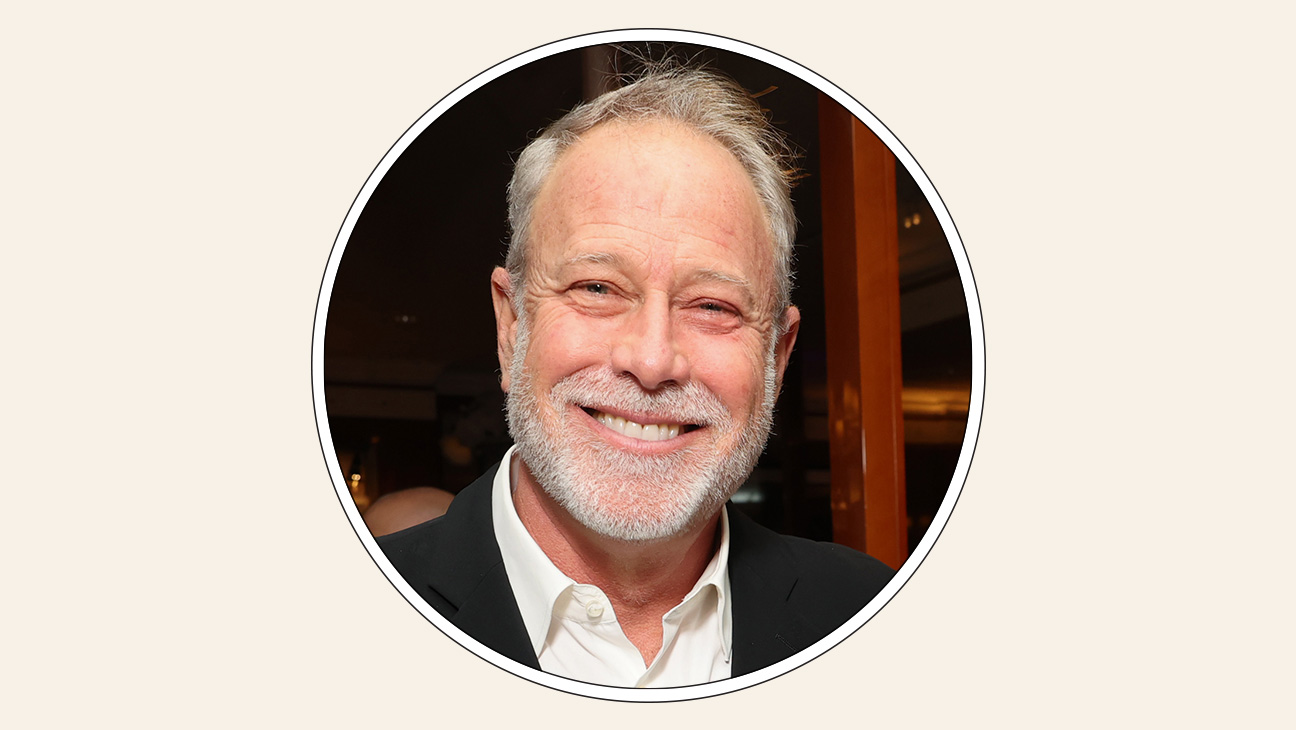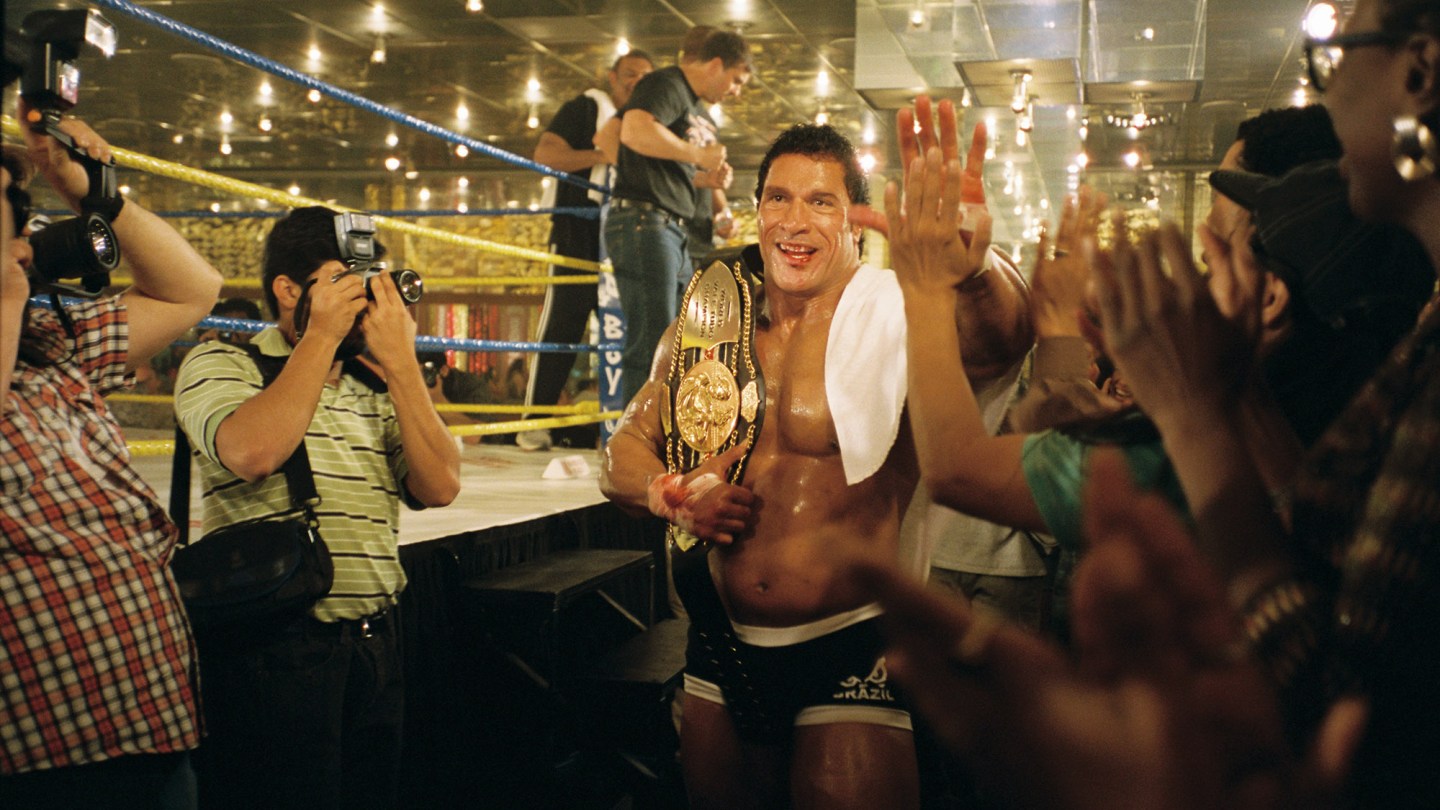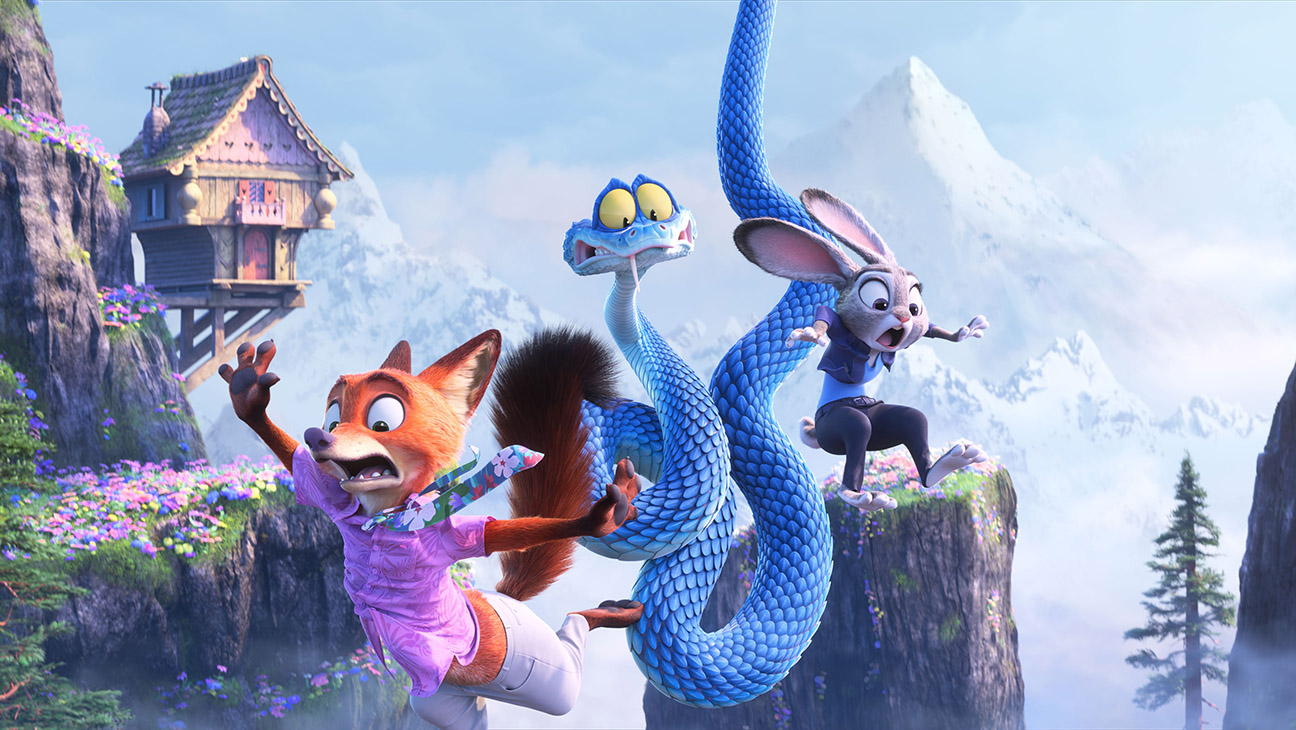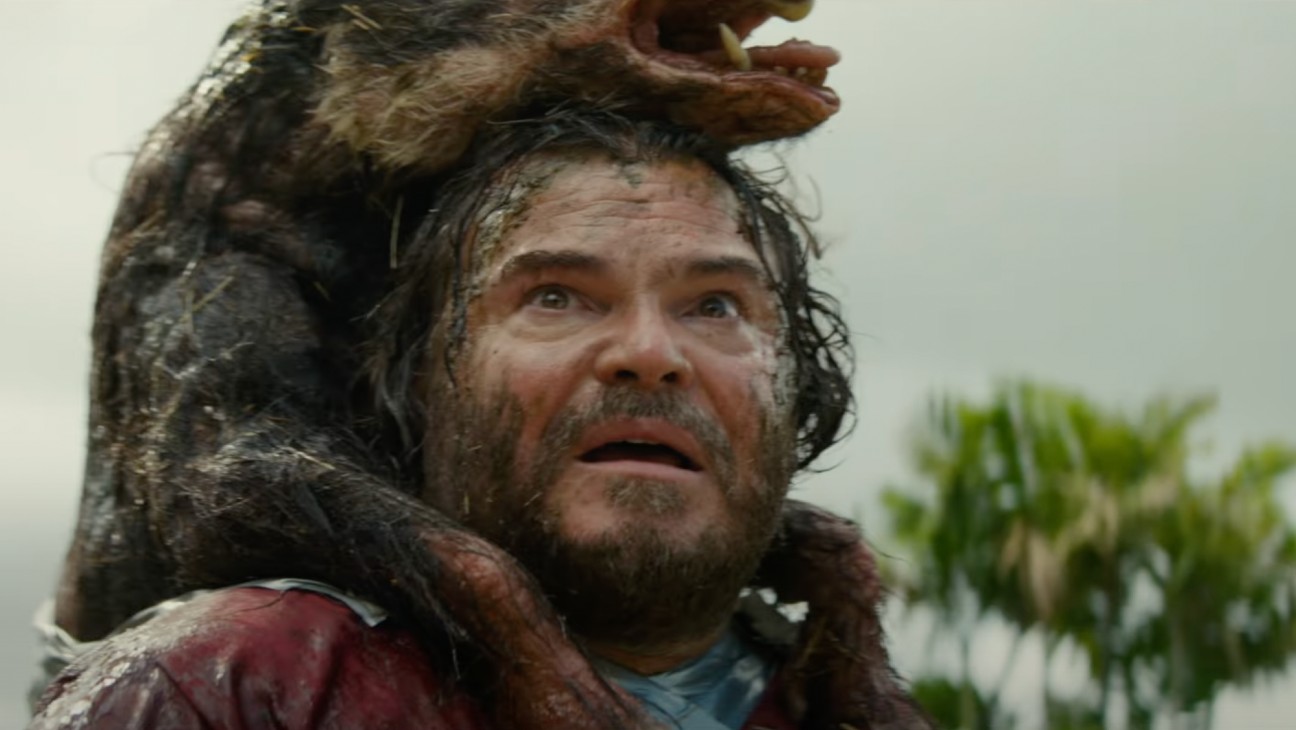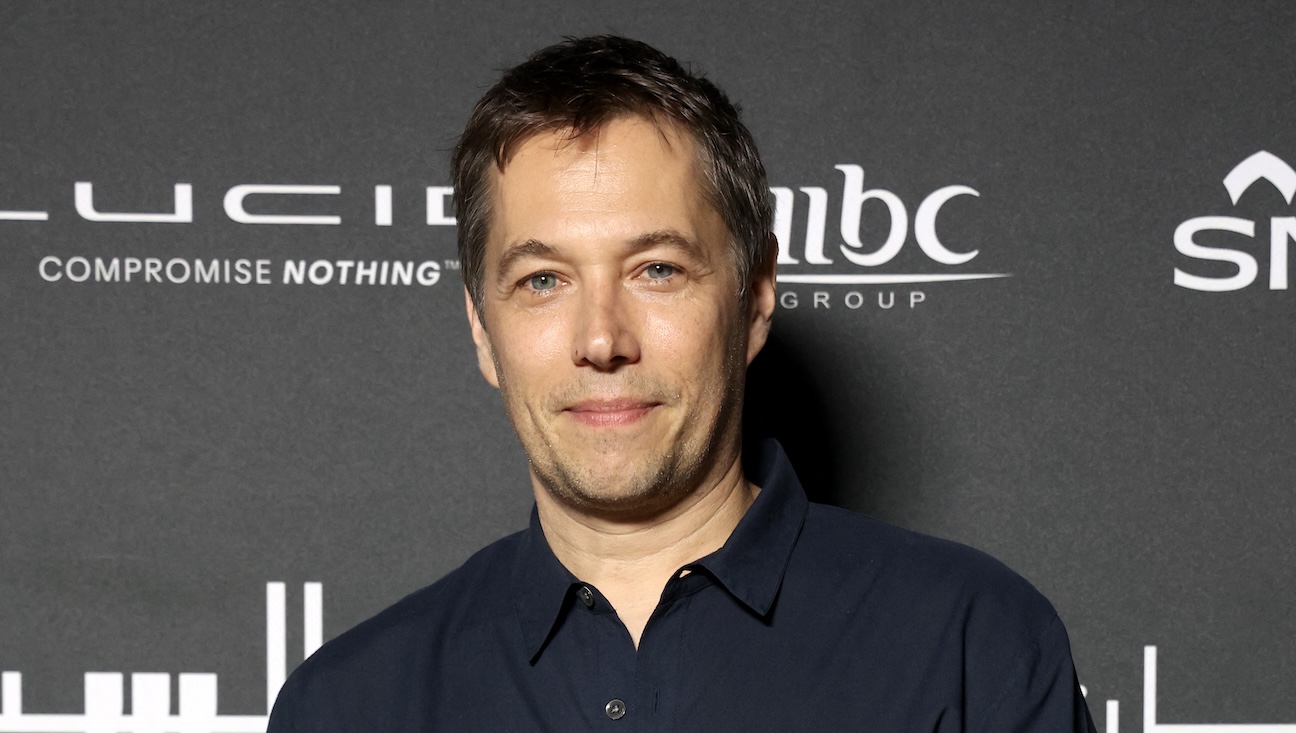Todd Garner is diving back into The Producers Guide.
The veteran producer and onetime studio executive has revived his popular industry podcast, and it’s not because he’s got idle time. Garner, who heads up Broken Road Prods., has more than a handful of upcoming projects on the horizon among them Mortal Kombat II and Runner starring Reacher breakout Alan Ritchson with Owen Wilson in addition to the 13 Going on 30 musical in Manchester. But in between his producing duties, he’s leaning into a mission of countering all the negative headlines about Hollywood and its imminent demise by sitting down for insightful conversations about the business of producing with a hopeful goal of helping to turn things around while inspiring the next generation of filmmakers.
“I watched Jane Goodall’s final interview,” explained Garner, referring to the famed conservationist and environmental activist who passed away earlier this month. “She kind of makes a challenge at the end about climate change by saying that it’s awful and hard but if you don’t do anything about it, then you’re complicit in the problem. I don’t want to be complicit in the demise of Hollywood as it has been predicted. I felt that I have to have conversations about this.”
Garner has been having conversations on The Producers Guide since it launched in the spring of 2018. He came out strong out of the gate and went on to produce more than 130 episodes in total as it rose in popularity during the pandemic by leaning on his well-earned connections in the business to bring on movie stars (Adam Sandler, Kevin James, John Cena), studio chiefs (Michael De Luca, Jonathan Glickman), agency partners (Jason Heyman), filmmakers (Joe Russo, Jon M. Chu, Eli Roth), fellow producers (Jason Blum, Marty Bowen, Basil Iwanyk, Nina Jacobson) and more. But the business has changed a lot since then, and Garner is ready to talk about the good, the bad and the insanely difficult. But it’s clear from the below conversation that he wants to put something on the airwaves that parts the clouds hanging over Hollywood and allows the light to shine through.
The obvious question is why are you bringing back your podcast at this moment in time?
The Producer’s Guide started before the pandemic, which was really when so many people discovered it because they had nothing else to do. Why listen to me unless you have nothing else to do? (Laughs.) But I stopped doing it [after a while]. During the strike, Billy Ray and I did a podcast together called Strike Talk. Billy is the guest on my second episode, and we joke in the beginning of our conversation that we “solved everything.” All of our problems are gone now. (Laughs.) What has become horribly and painfully obvious post-strike is that as the challenges facing our business have risen, the press and the chatter has gotten way more negative. I’ve always fought against that. I’ve always tried to remain optimistic. I mean, I’m a middle-aged producer. If I’m not able to be optimistic, I wouldn’t be doing this. There’s no other way to keep your spirits up.
I’m sure a lot of people across the industry will be stoked to find out that you’re bringing it back…
Honestly, a lot of people were asking me when I was bringing it back, telling me that it was the only thing that got them through the pandemic. It was a piece of positivity out there and hearing that really tugged at my heart. I’m a member of this group called Producers United, and when you really sit down and speak with any of the 300 members we have, you realize how hard it is to get anything done out there and how abused people are. There’s no other way to say it. It’s a power inequity that exists for producers and talent. It is really negative but I don’t want to go negative. The icing on the cake, for me, is that I watched Jane Goodall’s final interview. She kind of makes a challenge at the end about climate change by saying that it’s awful and hard but if you don’t do anything about it, then you’re complicit in the problem. I don’t want to be complicit in the demise of Hollywood as it has been predicted. I felt that I have to have conversations about this.
Conversations that include addressing the challenges?
Yes, obviously there are tremendous challenges but how can we as filmmakers, producers and talent turn our fortunes around? We can’t just allow all of these decisions to be made for us, whether it be tech companies deciding what we see based on algorithms and steering us in a certain direction or studios trying to figure out how to game the system and telling us time and time again, this is what’s theatrical. Because that trickles all the way down to junior executives who are hearing this constantly in their meetings. They’re forced to defend it and tell us, “Sorry, this is all we can do.” As a movie producer who loves doing this and whose livelihood depends on getting stuff made, I’m trying to speak out and ask, is there a different way? Can we figure out a way to diversify the slate and do more projects that can be profitable?
Obviously, the end game for everybody is to make money. But there’s so much confirmation bias in the Monday morning quarterbacking that goes on. People say, “Roofman didn’t work so, of course, comedies don’t work.” But just because that particular movie didn’t work doesn’t mean that there should be an indictment on all comedies. Comedies do work. They just work in different ways today. Audiences will come back to theaters for high-concept comedies that speak to a lot of people, like The Hangover or Wedding Crashers. I believe they would. I’m trying to do everything I can to fight against that self-fulfilling prophecy that gets tossed around when something doesn’t work, and I’m speaking to smarter people than myself to try and come up with answers. I just don’t want to be sitting on the sidelines and throwing grenades into the pot.
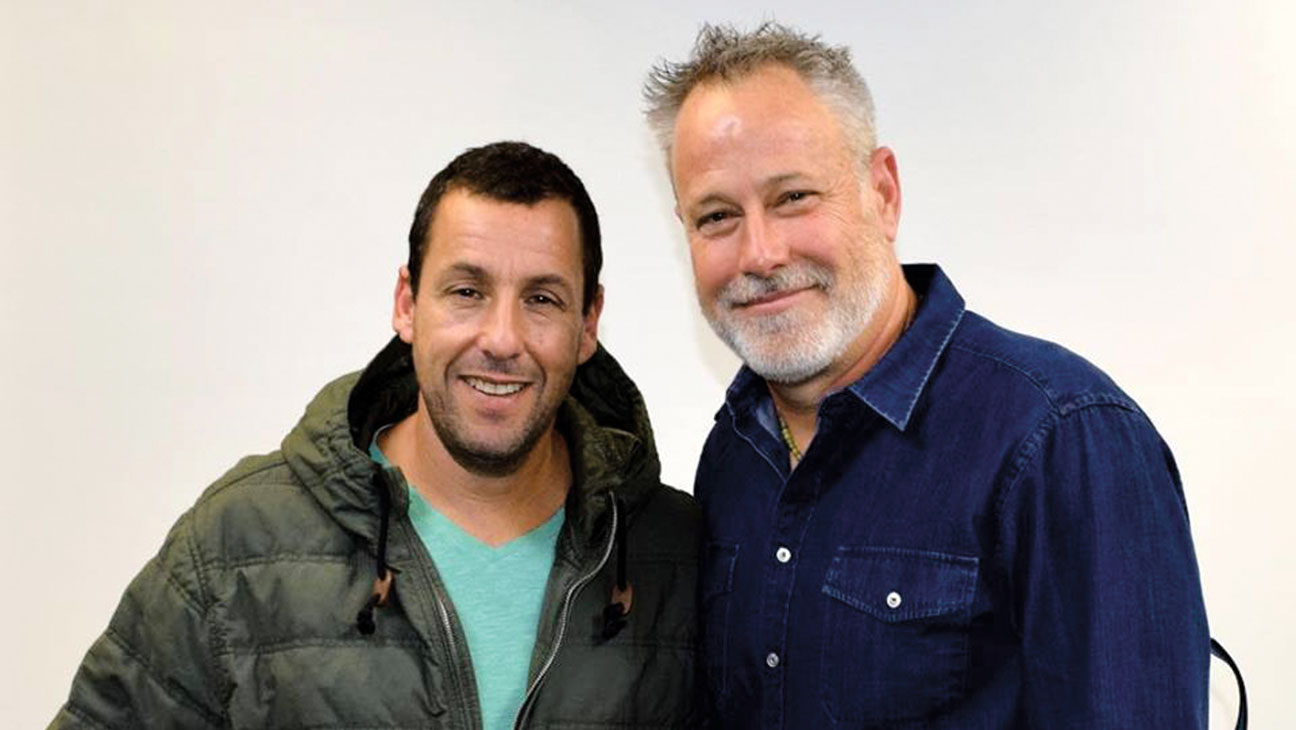
Is Producers United involved in an official capacity?
No, I’m just a founding member. I’m also a member of the [Academy of Motion Picture Arts & Sciences]. All of these organizations are doing the same thing, which is we’re trying to improve, fix, make better or at least figure out a way forward for our business to make it more robust while not relying on the same tried and true methods or just throwing up our hands and saying, “Well, the algorithm knows best.” Because that has proven to not be true. KPop Demon Hunters is now the algorithm, and nobody knew anything about it a couple months ago. Obviously, people at Sony didn’t believe in it enough to release it, but the people at Netflix did. Hopefully, in talking to all these people will maybe help inspire others to take a chance to stand on a table and say, “Hey, boss, I really feel this is going to work.” Their voices are so important right now, and I don’t know that executives feel their voices are important.
What are you hearing from executives?
They sort of feel defeated, like they are being told what to do. It didn’t feel that way when I was doing the job. We had our own tastes, our own egos, our own sense of trying to win. It’s not that they don’t care, which they obviously do. The mood just feels a little defeatist right now. They are being told by their bosses what works based on data and research. Honestly, in the last three or four years, I’ve not had an executive say to me, “You know what, it’s not my thing.” It’s always some other bigger issue, like, “We don’t think this genre works,” or, “We need a movie star,” or, “This isn’t theatrical.” I would love to hear, “Todd, this didn’t work for me. It’s not my taste.” I would appreciate that. Or, “I love this so much and I would die on the hill for it, but I just can’t get it made right now.” Pitching today, honestly, feels more like going into a bank and asking for a loan, which is sad.
I did the job for 15 years, and I never thought of myself in that way. I was a creative person who thought of myself as a filmmaker that wanted to make good movies. I don’t think anyone who’s doing that job thinks they’re a bank loan officer. They are creative, too. They feel like because of the overall universe right now and how it’s between the strikes, the economic downturn, consolidation, AI, there’s so much being thrown at them that it’s defeating and defeatist. It can be hard to have a positive attitude and to really let that creativity shine through. I’m praying that somehow I can inspire a tiny spark in someone that would lead them to going full Norma Ray by standing on a conference table and fighting for a script. I don’t know what else to do other than open up the conversation and shine a light on it.
Let’s go back to what you said earlier, that people are being abused. Can you expand on that?
Producers have consistently been abused, and to be totally fair, they are sometimes abusive. I can’t deny that. But in terms of the way that they’re treated, there’s a general sense in the business right now that it’s not a real job or that creative executives could probably do it. “Do we even need producers? What do they do? What even is a producer?” There’s a general misunderstanding of what good producers actually do, and we are are fighting against that perception while navigating a capped pool of resources or being told to add in six more producers and divide credits and fees. “You guys figure it out.” We have to basically become the bank at certain points. If it is two weeks out from production and the budget gets too high, we’re told, “If you want to get this movie made, you better cut your fee.” It’s constant. On the flip side of that, people just assume that we’re all rich so why are you complaining? It’s not true.
There’s so much happening in our business and it’s only getting harder. Honestly, out of the 300 members of Producers United, there’s a large percentage of people unemployed. It’s mind blowing. These are all kick-ass, talented, unbelievable filmmakers. Every single one of them. We have a very high bar for membership, and we try to keep it tight. It’s not like a club. These are really, really great producers and I guarantee that if you put any one of them on a movie, they would make the movie better.
Beyond Billy Ray, what can you reveal about the guest list for the podcast?
The first episode that drops [today] is with Rebecca Green of the Dear Producer blog. She’s an unbelievable producer who is [a discipline head of producing] at American Film Institute. She and I talk through, the most detailed way, what a producer is, what they do and how it all works, all the way from idea through distribution. She comes from the independent world and I come from the more studio world, and so we break it all down. Billy Ray came on to talk about everything on a very global level in the way that we did on Strike Talk. He’s an incredibly smart human who is in very active in politics and in the guilds. I really wanted to talk with him about all of the issues facing the business right now.
How many episodes on the new season?
It’s not a season, I am just going to keep doing it. I’m going to ask agents and actors to come on the show. I’m going to ask people what they want in a good producer. How can we do better? How can we make the process better, more profitable and more commercial. The biggest job of a producer is be the liaison between commerce and art. We need great people doing these jobs. If you get a really great producer for your movie or television show, it can make a difference. This business was founded by producers. That’s why the AMPTP is called the AMPTP. The Warner brothers, Adolph Zukor, they started this business and created studios. They created the business of producers. I believe that we can link arms and figure out how to make it better.
I was one of those who found the podcast during the pandemic, and I really enjoyed listening to it because there are so many podcasts with people talking about Hollywood but only a handful featuring people talking about it from the inside. What did you learn from the first run?
The feedback I got is that it just made people feel a little bit better. I can turn on any podcast about the business right now or listen to anyone who calls themself a “producer” on social media, and all they talk about are the headlines of how bad it is. You can’t go on X any day of the week and not read a story about how Hollywood is cooked or some awful AI clip. I’m on the Warner Bros. lot right now and it seems to me that stuff is happening. It seems that people care. People are trying to make good projects. I get that for a hundred years, there have been these crazy barriers up and now some of those guardrails are taken down so that anyone can do it. But I don’t think anyone can do it. You have to be tenacious. You have to have a passion for it. You have to be talented. And I’m going to talk to those people on The Producers Guide.
I get emotional about it because I’m in the fourth quarter now and what do I want to say to the younger generation? We are going to miss out on the Spielbergs, the Paul Thomas Andersons, the Michael Manns, the Jim Camerons. Because we’re telling everybody, “Don’t bother trying. Do something else.” But I want to see those movies. I want to see those television shows in 20 years. If we don’t do it now, and we don’t give the younger generation hope or tell them how to do it despite the difficulties and challenges, we will be missing out. And we’re only going to get people in their basements regurgitating Family Guy, South Park and Star Wars or whatever else they are mashing together. I don’t want that.
The Producers Guide is now available.

